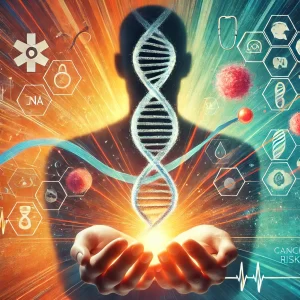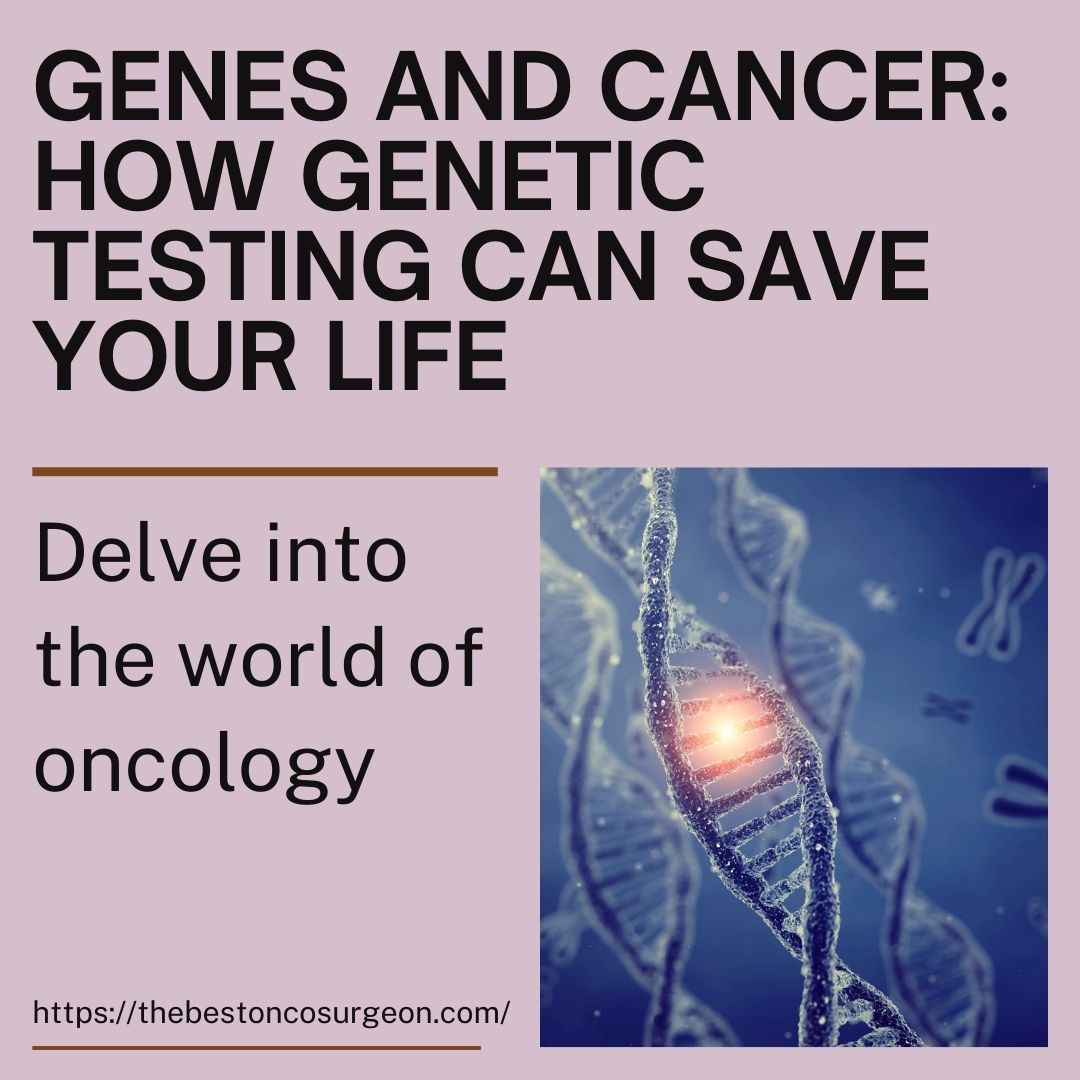Introduction
In the fight against cancer, early detection and prevention are crucial. One powerful tool that has emerged in recent years is genetic testing. By understanding your genetic makeup, you can gain valuable insights into your risk of developing cancer and take proactive steps to protect your health. This blog explores how genetic testing works, its benefits, and how it can potentially save your life.

Understanding Genetic Testing
Genetic testing involves analyzing your DNA to identify changes or mutations that may increase your risk of developing certain cancers. These tests can detect inherited genetic mutations, such as BRCA1 and BRCA2, which are linked to a higher risk of breast and ovarian cancer, among others.
How Genetic Testing Works
The process of genetic testing is straightforward. It usually involves a simple blood or saliva test. The sample is sent to a laboratory where it is analyzed for specific genetic mutations. The results can provide information about your risk of developing cancer and help guide your healthcare decisions.
Who Should Consider Genetic Testing?
Genetic testing is not necessary for everyone, but it is highly recommended for individuals with a family history of cancer. If multiple family members have been diagnosed with the same or related types of cancer, or if a family member was diagnosed at a young age, you might be at an increased risk. Consulting with a genetic counselor can help determine if genetic testing is appropriate for you.
Benefits of Genetic Testing
Early Detection: Knowing your genetic risk can lead to earlier and more frequent screenings, which can detect cancer at an earlier, more treatable stage.
Preventive Measures: High-risk individuals can take preventive measures, such as lifestyle changes, medications, or preventive surgeries, to reduce their risk.
Informed Decisions: Genetic testing provides information that can guide your healthcare decisions, including personalized screening schedules and preventive strategies.
Genetic Counseling
Before and after genetic testing, genetic counseling is essential. A genetic counselor can help you understand the implications of the test results, discuss your risk factors, and explore your options for managing your risk. They can also provide support and resources for coping with the emotional impact of the results.

The Impact on Family Members
Genetic testing has implications not only for you but also for your family members. If you test positive for a genetic mutation, your relatives may also be at risk. Sharing this information with them can encourage them to seek genetic counseling and testing, leading to early detection and prevention within your family.
Addressing Common Concerns
Privacy: Many people worry about the privacy of their genetic information. Laws such as the Genetic Information Nondiscrimination Act (GINA) protect against discrimination based on genetic information in health insurance and employment.
Emotional Impact: Receiving genetic test results can be emotionally challenging. Genetic counselors are trained to provide support and help you navigate the emotional aspects of the results.
Future of Genetic Testing
The field of genetic testing is rapidly evolving. Advances in technology are making tests more accurate, affordable, and accessible. In the future, genetic testing may become a routine part of healthcare, helping to prevent and treat cancer more effectively.
Conclusion
Genetic testing is a powerful tool in the fight against cancer. By understanding your genetic risk, you can take proactive steps to protect your health and potentially save your life. If you have a family history of cancer or other risk factors, consider talking to a genetic counselor about whether genetic testing is right for you. Early detection and prevention are key, and genetic testing can provide the information you need to make informed decisions about your health.




